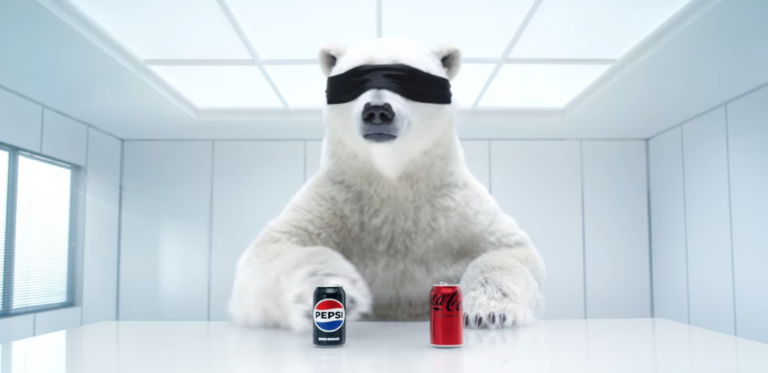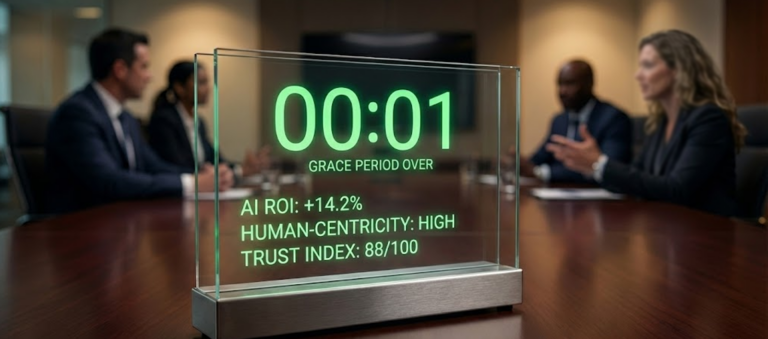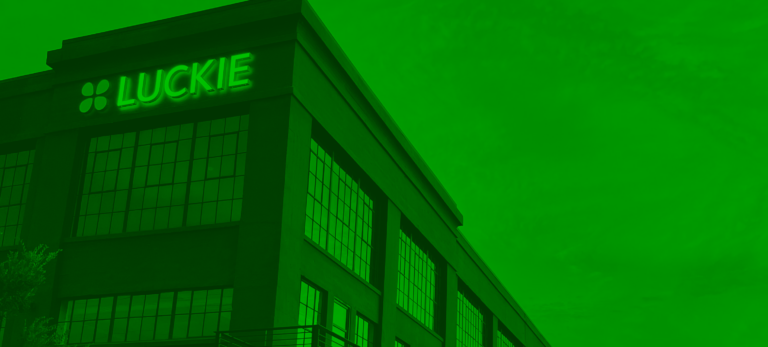Hello? Is this thing on? Is anyone out there truly energized about business right now? It’s a question I started asking myself as we enter the sixth month of this unprecedented COVID economy.
Thankfully, I’m seeing signs of life as consumers begin to reengage in economic activity.
Thankfully, live sports have returned to TV.
Thankfully, Luckie has not simply survived this disruption intact, we’ve thrived in many ways.
I’m not sure I can say the same about marketing in general, but I am still reflecting on that, looking for business insights that will help us become better at what we do in the next normal.
As we begin six months of this pandemic, here are six observations I have about business:
1. Technology diminishes personality (in a good way).
Pre-COVID, ideas and solutions were usually driven by the most persuasive employee, or most senior person in the room. With nearly all meetings now virtual, technology has leveled the playing field and junior team members, introverts, and our data scientists are having a big moment. They can be heard clearly through Slack or Zoom – free from the personality influences a conference room can foster – and their insights are driving new opportunities for our client partners.
Where are your most compelling ideas and solutions coming from right now? How are you using technology to tap the potential of your entire organization? Collaborating virtually has its challenges, for sure, but we’ve found a new, more effective, and more democratic way of brainstorming at Luckie thanks to COVID.
2. Marketers need to be more curious (and less boring).
“The real voyage of discovery consists not in seeking new landscapes, but in having news eyes.” – Marcel Proust
With no one forcing us to engage in early spring, many of us lost our edge. We spent way too much time binge watching YouTube and Netflix. We stopped working out and quit wearing pants. We socially distanced ourselves from good ideas – jumping into a sea of sameness with sad copy and meaningless hashtags. We became, in a word, boring.
The key to not being boring is to be curious. Be a good listener. Be a keen observer. Dig deep into your data to find new insights that lead to a strong point of view.
Are you boring your prospects? Making your customers sleepy with reactionary, me-too advertising?
3. Pressure makes diamonds … and crushes things.
There are great stories about businesses adapting early during the pandemic – distillers making hand sanitizer, restaurants becoming fresh food markets, doctors embracing telemedicine. Many companies have pivoted their customer experience without changing their brand values and they’ve thrived (anyone been to Chick-fil-A drive-through recently? I nominate them to oversee traffic logistics moving forward). Many others have not been as fortunate.
Disruption distinguishes the strong. When the pressure is on, the best people focus, get even more focused, and most importantly, adapt constantly. (This is true away from the office too – balancing kids, aging parents, virtual school, etc.) They stumble, of course but the cream rises through intentional effort, honest conversations, and a no-excuses approach.
The gap between poor|good|great is more apparent today than ever. Where can your company make radical changes to meet a customer need? A new delivery channel? A tangential product? Exercises in agility – whether forced by disruption or not – are critical to long-term survival.
4. Perfect is indeed the enemy of good.
One definitive thing I’ve learned over the last six months is that ‘adaptable’ is the new ‘strategic.’ It’s clear we can’t plan ourselves out of crises this big, but we can help reinvigorate a business if we’re agile enough to adapt and pivot. No one loves planning and strategizing more than a marketer, but the notion of a perfect plan no longer exists.
Don’t let perfect get in the way of good. And don’t wait until there is certainty in the market to act – it will be too late. Being nimble is what gives us an edge. And building models that predict marketing drivers is essential for survival.
Even the best plans will not survive perfectly once market momentum picks up. So, let’s go for it. Give up perfect and aim for learn-and-adapt. What’s brewing in your company that’s worthy of action?
5. Our industry is reactive … and marketers (governments, too) suck at being reactionary.
Being a marketer in good times is easy: Create a message, choose a channel, and connect with an audience. Change the media model for better reception. Throw in a series of global disruptions, however, and we become sheep, reacting to each other instead of responding with bold, brand-appropriate solutions.
Marketing templates don’t work when unprecedented change happens. And traditional segmentations, media approaches, and channel strategies will not work as we fully return to marketing. Consumer mindsets are different now, and their altered behaviors provide a tremendous opportunity to drive higher returns at a faster rate with the right response.
As marketers we must be better prepared to react to good and bad – with technology, data, and ideas. How are you planning to accelerate demand for your brands? What behavioral and econometric variables are you overlaying in your data? How do you plan to cultivate customers differently? How are you going to shape the next normal?
6. We must recharge in new ways
As I asked in the beginning, who else is finding it difficult to be fully present right now? If we mapped it, I’m certain there would be a classic bell curve for creativity and energy output over the past six months: the first 30-45 days of COVID-19 lockdown were pure momentum and fear; over the next 30 we settled in to a new business as usual routine; at 90+ days, creativity and energy began to diminish with little to no in-person collaboration and continued bad news through summer holidays.
Six months ago, I would have recharged by GOING AWAY. Today my energy is boosted by GETTING TOGETHER. In-person gatherings with a small group of team members now have as much impact as a week-long vacation. We all have to find new ways to recharge, to replace the energy that came from a collaborative workplace. Where is your energy coming from today?
I am energized about business right now. I’m motivated to find new agile ways of working, to look for optimal ways of capturing the attention of today’s consumer. I’m also ready for SEC football.




